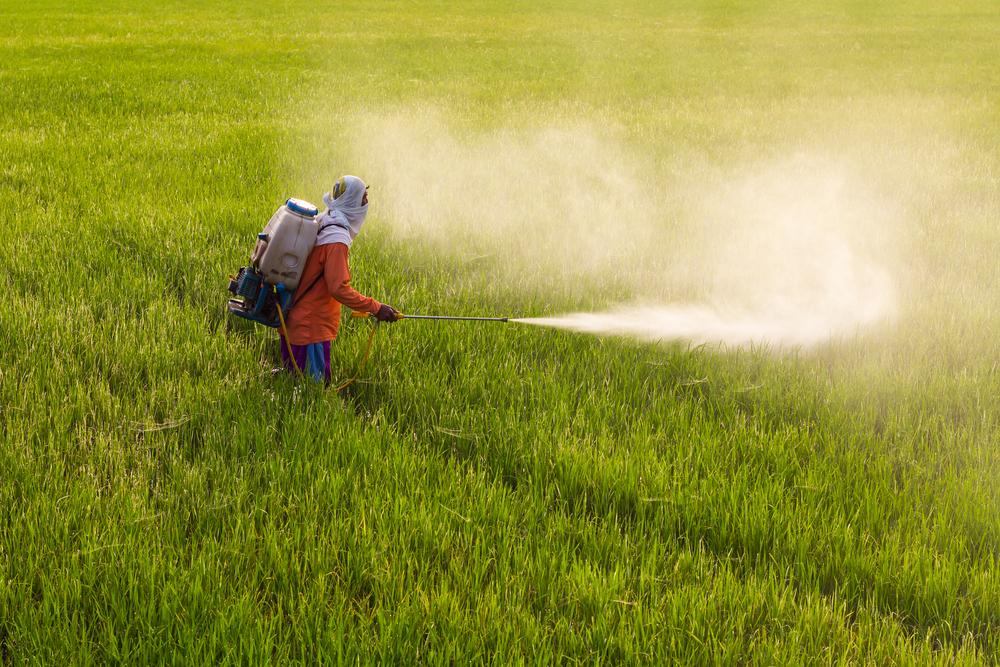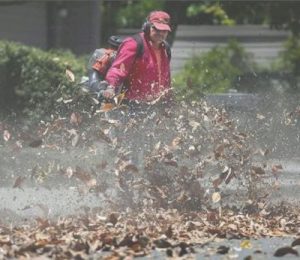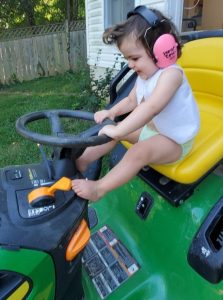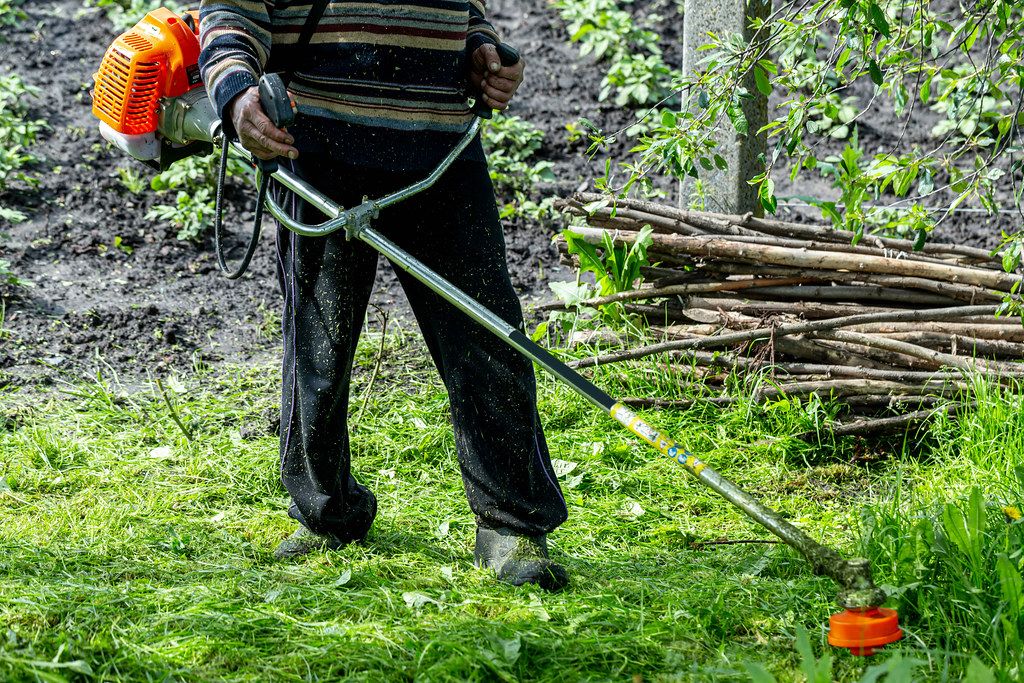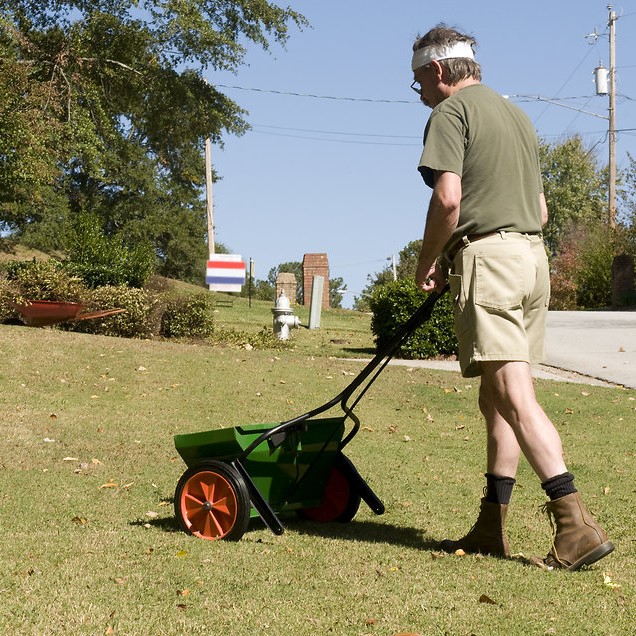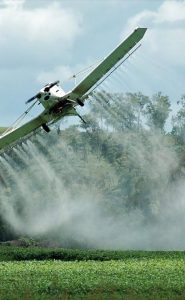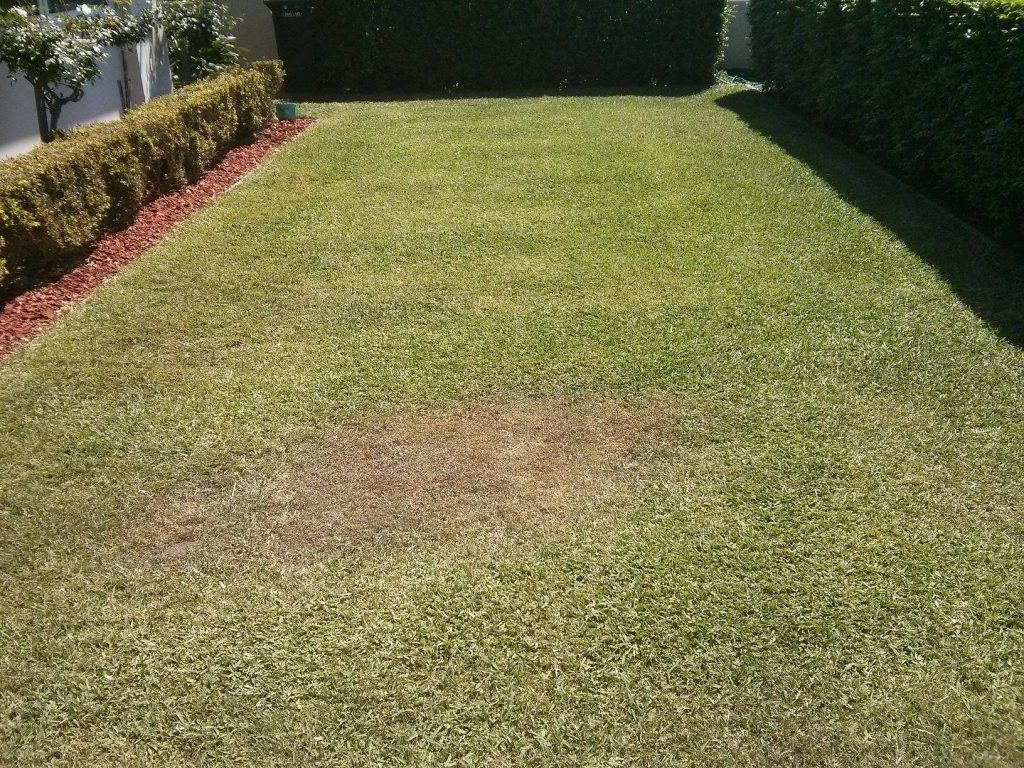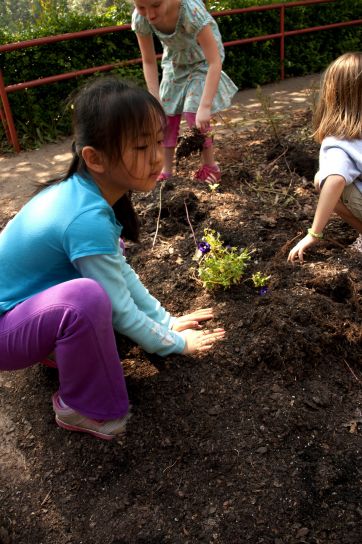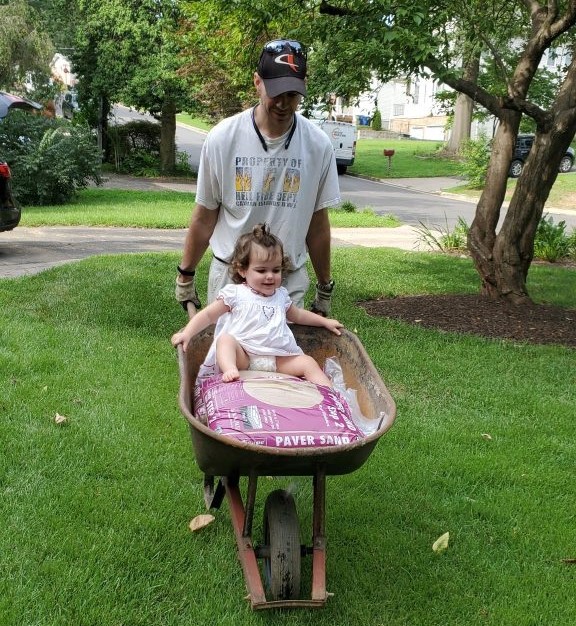Besides the actual labor and costs involved, “taking care of” the out-of-doors can be harmful to the environment. Creating the beautiful, healthy gardens we love can have less than ideal side effects on the planet and on our own bodies.
Take Care of the Environment
Many tasks that were formerly done by hand, now performed with the help of machinery or strong chemicals, can cause long-term damage even as they make life easier in the short run.
Noise Pollution
Gas-powered lawn mowers range from 82 to 90 decibels. Weed whackers make 96 decibels of noise. Hedge trimmers can blast away at 103 decibels. Gas-powered leaf blowers make 80 to 92 decibels of racket.
Here’s one specific example. More than 11 million gas powered leaf blowers (GLB) operate in the US. Most are powered by inefficient 2-stroke engines. According to a study by Erica Walker and Jamie L. Banks, noise from this equipment was found to exceed WHO outdoor daytime standards (55 dB) up to 800 feet away from the source. The ability of this sound to travel over long distances (because of strong low frequency components) suggests that GLB sound has wide ranging impact on surrounding communities. The noise is intolerable to some and many communities have enacted ordinances restricting their use.
Ear protectors can help save your hearing, but also consider your neighbors!
Better alternative: A lawn mower that mulches leaves and clippings, thus using a natural fertilizer to enrich the soil
Air Pollution
Small-motor, gasoline-powered equipment is a significant contributor to climate change. According to the EPA, off-road gasoline-powered equipment, such as lawn mowers and leaf blowers, emit approximately 242 million tons of pollutants annually, just as much as cars and homes.
Chemical fertilizers also create substantial amounts of air pollution. Only about half of the ammonia used to make nitrogen fertilizer contributes to crop growth, while the remaining ammonia is returned to the atmosphere as nitrogen gas, causing an increase in greenhouse gas and the eutrophication of rivers.
Better alternative: Electric or hand powered tools are quieter and create much less air pollution
Soil and Water Pollution
Fertilizers contain high levels of nitrogen and phosphorus, which can lead to oxygen depletion, overgrowth of vegetation, and fish kills.
Excess nutrients can cause harmful algal blooms in freshwater systems, which not only disrupt wildlife but can also produce toxins harmful to humans.
Fertilizers can also leach through soil into groundwater, which is very harmful to the surrounding ponds, streams, rivers, and oceans.
Better alternative: Compost kitchen scraps and yard waste to fertilize plants naturally.
Pesticides and Herbicides
Is it best to live and let live?
Chemical herbicides and pesticides can contaminate soil, water, turf, and other vegetation. In addition to killing the targeted insects or weeds, they can be toxic to a host of other organisms including pets, birds, fish, beneficial insects, and non-target plants.
Better alternative: Pulling unwanted plants, creating physical barriers with mulch, or using less harmful alternatives such as vinegar or soap
Ecosystem Disruptors
Sometimes non-native or non-adaptive species in the garden can wreak havoc on the local ecosystem.
I recently wrote about invasive species that started out as garden ornaments, including kudzu and Japanese honeysuckle. Different growth patterns and the lack of local predators allow these plants to grow out of control in their new environments, often displacing native species.
Lush green lawns actually create what scientists call “ecological deserts.” Grass monocultures wear out soil nutrients quickly and provide nothing for local insects and other wildlife to eat. The lack of flowering plants contributes further to declining pollinator populations. Grass lawns also require more water than any other type of ground cover, a growing concern in many drought-prone regions.
Better alternative: Try local plant varieties that are already adapted to regional conditions or replacing grass with “pollinator lawns“
Take Care of Your Physical Well-Being
Gardening requires physical exertion, including lots of bending, stooping, digging and carrying. The repeated gardening actions put strain on your back and joints like your knees. If you already have problems with pain or limited mobility, taking care of your garden can worsen those symptoms. Distribute the work rather than having marathon days or weekends. Also, some equipment can be helpful, such as stand-up weeders and kneeling benches.
Gardening can also seriously injure your skin. Fertilizers, pesticides, and herbicides can cause skin irritation and even chemical burns. Without proper sun protection, gardeners run the risk of sunburns and sun stroke. Exposure to irritants in plants like rue, celery, geraniums, and daffodils can result in reactions ranging from rashes to serious illness.

Participating in lawn mower racing also greatly increases the dangers of injury from crashes or flips. Better wear a helmet!
BOTTOM LINE: Choose your tools and products carefully and use sparingly. Despite the negative impact gardening can have on the environment, with a little thought, and perhaps a little behavior change, gardening can truly benefit the earth.
